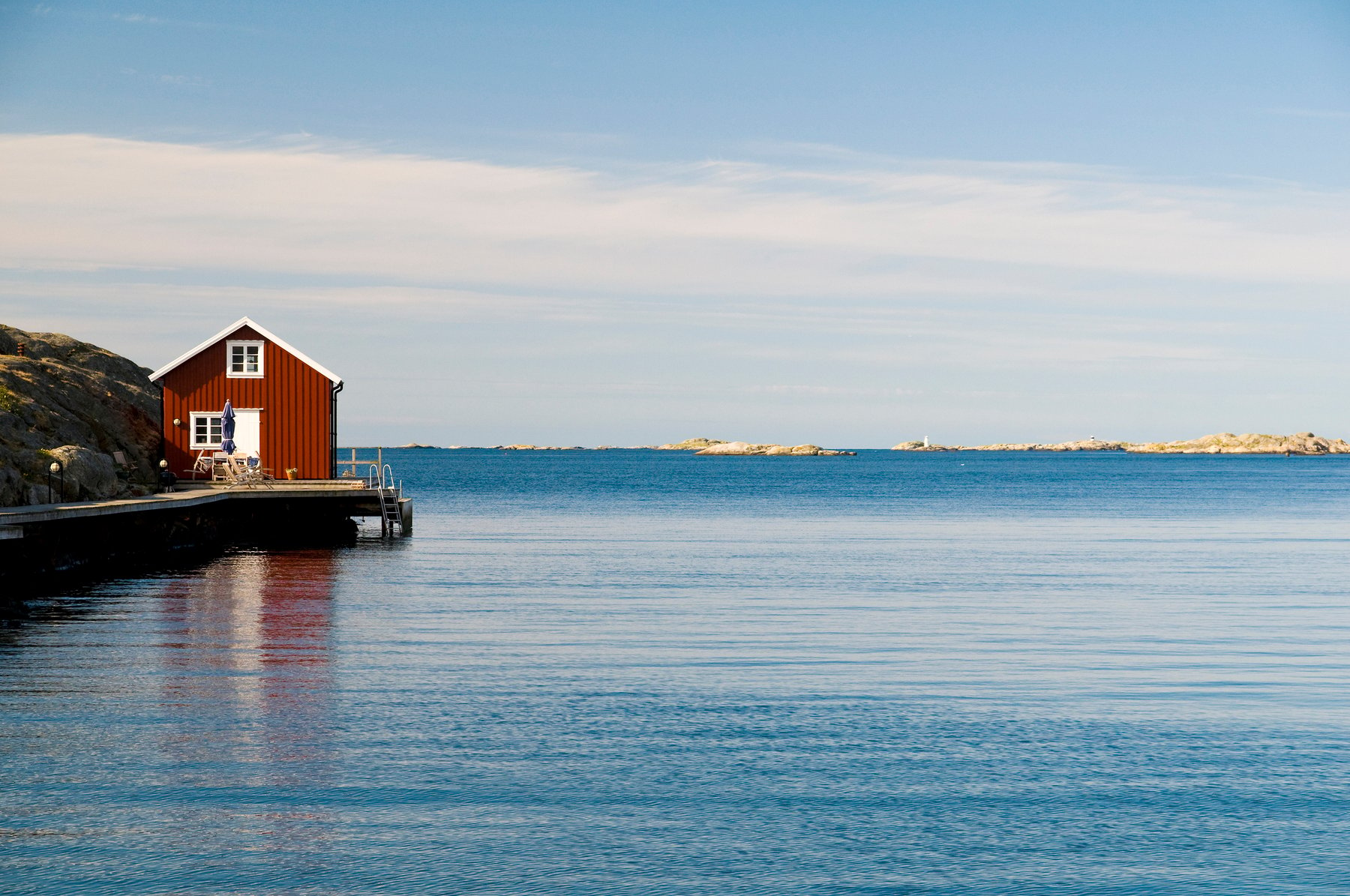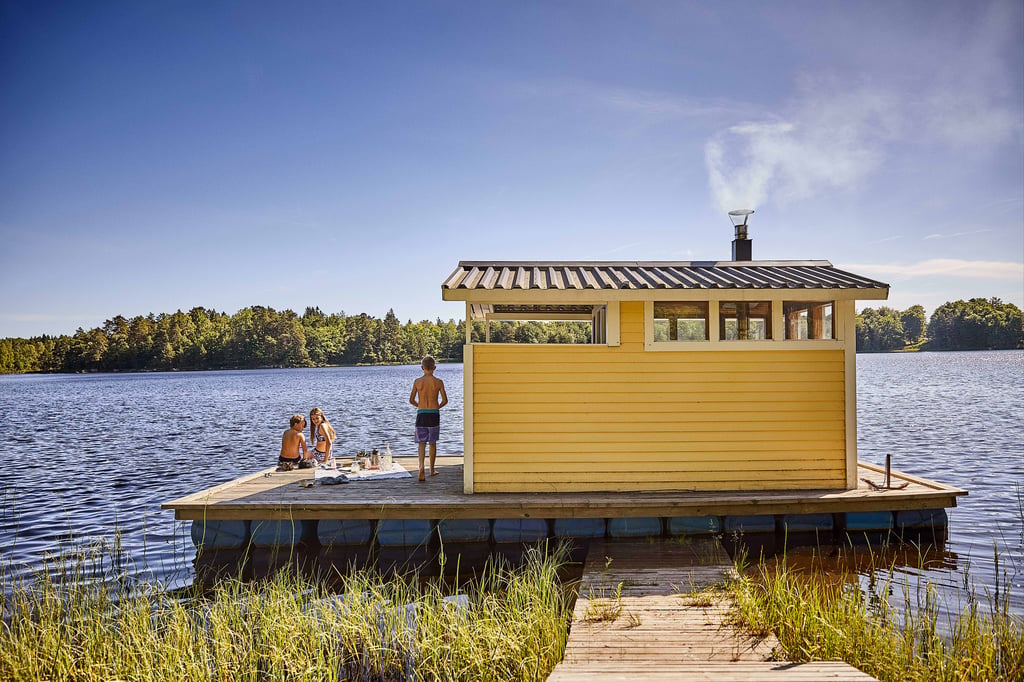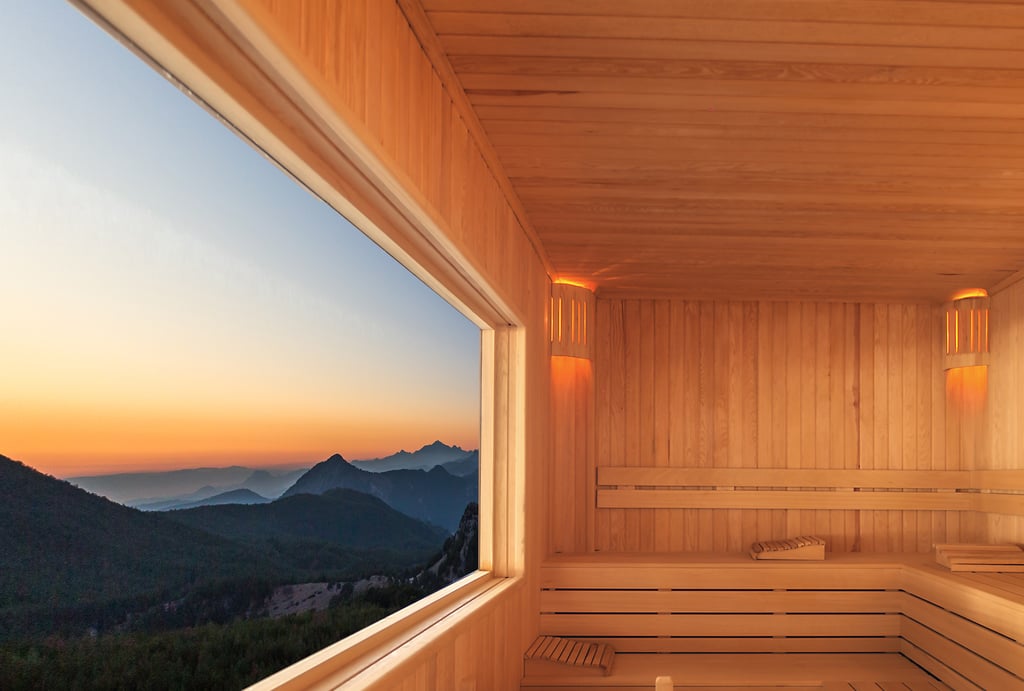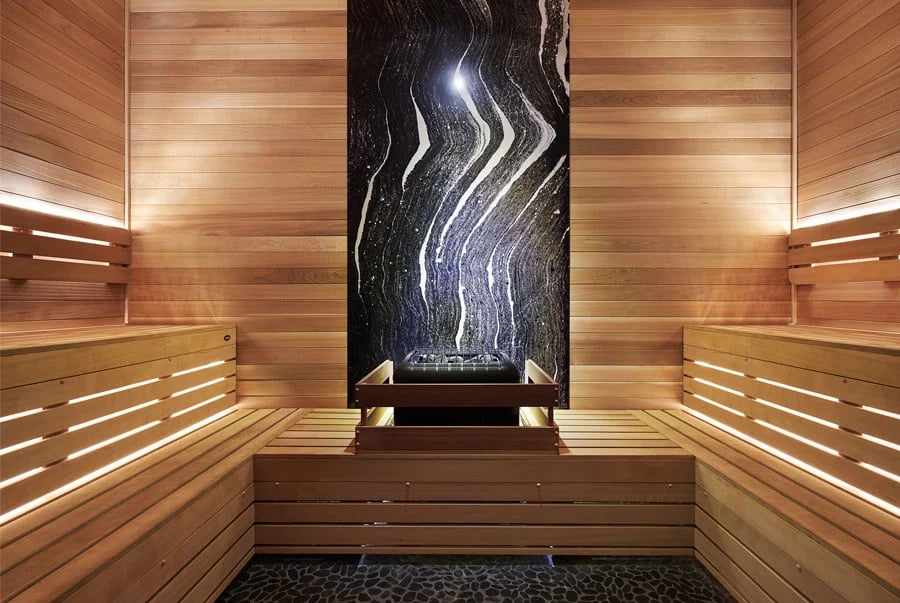Should you build an indoor or an outdoor sauna?

A modern and beautiful sauna in the comfort of your own home? Or a traditional and authentic sauna experience, closer to nature? Only you know what the sauna of your dreams looks like. Should you go for an indoor sauna, or should you build a sauna outdoors, separate from your house? Sometimes the choice is an easy one. If you live in an apartment, for example, you will have to build your sauna indoors. But if you’re planning a sauna for your house or your summer cottage, it’s good to give your options some thought before you start building.
Convenient – or close to nature
There are pros and cons with both indoor and outdoor saunas. An indoor sauna is more comfortable in many ways. It allows you to enjoy your sauna without having to leave your home, and you have showers and the comfort of your bathroom right outside.
An outdoor sauna, on the other hand, can sometimes provide a more authentic experience. Are you lucky enough to be living by a lake or the sea? Then an outdoor sauna located right by the waterfront is the ultimate luxury.
Do you need electricity in an outdoor sauna?
If you’re going to build your sauna outdoors, you need to consider whether you need to install water and electricity. If you do, that will be an extra cost. Another option is to go for a wood-burning heater so that you can enjoy deliciously scented fires without the need for any electricity.
Water for cooling down and for bathing
If you build your sauna indoors, you will have easy access to your shower or bath. It will be super easy to use your sauna whenever you’re in the mood, be it in the morning, on your lunch break or before you go to bed, If you have an electrical heater, you can have your sauna warm and ready to use in no time.
Outdoors, on the other hand, you may not even have access to running water. Which is fine! It’s just a different sauna experience. If there is no running water where you build your sauna, you can have a water tank on the side of your heater. That way, you can wash in warm water after your sauna session. Just remember not to use saltwater in the sauna, as it can make the heater corrode. Why not collect rainwater and use that!
Electrical lighting or natural light
In an indoor sauna, the electrical lighting options are endless. Whether you prefer dim, discreetly hidden spotlights or want to add colorful LED lamps to your experience, it’s only your imagination that limits you.
Outdoor saunas, on the other hand, are often built with windows to allow the natural light in. Windows will also provide you with views of your surroundings, and make your sauna wheel larger. If you have no electricity, you can bring a hurricane lamp into the sauna, when you’re taking your bath after sunset. Just remember never to leave it unattended!



